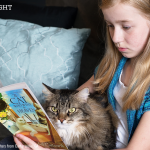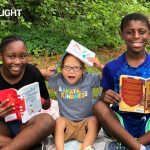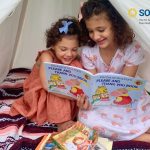Do your students trust the Internet? A little too much perhaps?
The famous Watergate journalist Bob Woodward recently criticized a class of elite journalism students at Yale. Their failure? He says they show "a heart-stopping over-confidence in the quality of the information on the Internet."
Woodward—who helped break the Watergate scandal—recently read the students' responses to the question "how would you cover the Watergate scandal if it unfolded today."
Apparently, the journalism students imagined they'd find the details of the scandal on the internet. In Woodward's words, they thought "that somehow the Internet was a magic lantern that lit up all events."
If you're interested, you can read all about this in The Wall Street Journal article "Before Watergate Could Be Googled." The article certainly got me thinking.
I remember Watergate. It took serious enterprise journalism to discover the facts and bring a private scandal into the open. Do students of today realize that? I wonder if students in the Internet/Information Overload Age really grasp that someone must do original research in order for new information to appear online.
Every field—journalism, the natural sciences, the humanities—requires some kind of original work. You can't report on a scandal if no one talks to the people involved. You can't study new data on the natural behavior of chimpanzees if no one goes out into the jungle and takes notes. You can't study contemporary literature if no one has written anything new.
Enterprise Thinking
Bob Woodward and Carl Bernstein practiced enterprise journalism; they hit the streets to find new, unpublished information. But I imagine your children aren't journalists. They're students (for now, at least). So what might be the equivalent exercise for them? Maybe we could call it "enterprise thinking," the ability to think for oneself.
How do we help kids learn to think for themselves?
I wonder if a good starting point is to teach kids to read with a critical eye. If we want them to really understand a complex topic, they'll need to read more than just a textbook passage, a Wikipedia article, or a few Facebook posts. They should read entire books and articles; they should consider different views and really dive into the topic.
I certainly hope to foster this type of study and critical thinking with Sonlight Curriculum. Sonlight students spend time reading and analyzing newspaper articles from Core F on up. Sonlight also uses "real" books to present complex issues and help students research various topics. When studying the American Civil War, for example, students read firsthand accounts, biographies, historical fiction and more.
My hope is that as students consider different viewpoints they learn not to take one person's answer (or one internet search) as the whole unbiased truth. I hope they learn to think critically and come to their own well-reasoned conclusions (under the authority of Scripture and with parental guidance, of course).
I wonder—if we can help our students learn that, will they be more prepared to dive in and tackle the challenges of original research and original thought when their time comes?
What do you think? How can we seek to raise up children who critically evaluate and engage their world?
Blessings,
Sarita Holzmann
Want more encouragement?
Sign up for Sonlight's bi-weekly e-newsletter
You'll be encouraged by the words of founder Sarita Holzmann, inspired by real-life stories from other homeschoolers, pick up practical tips for the journey and more.







